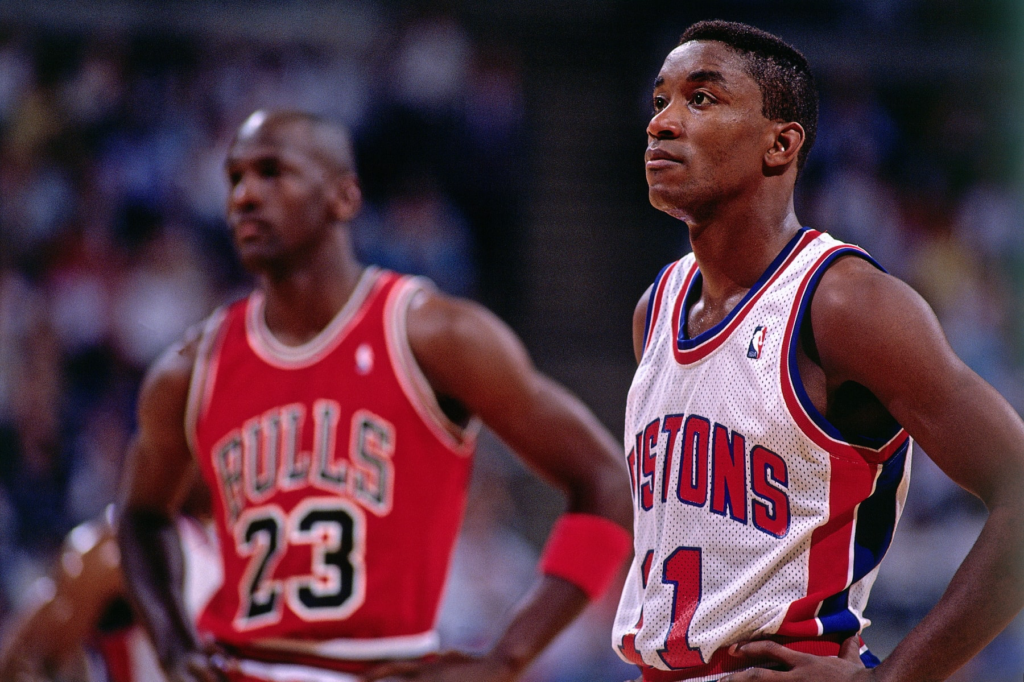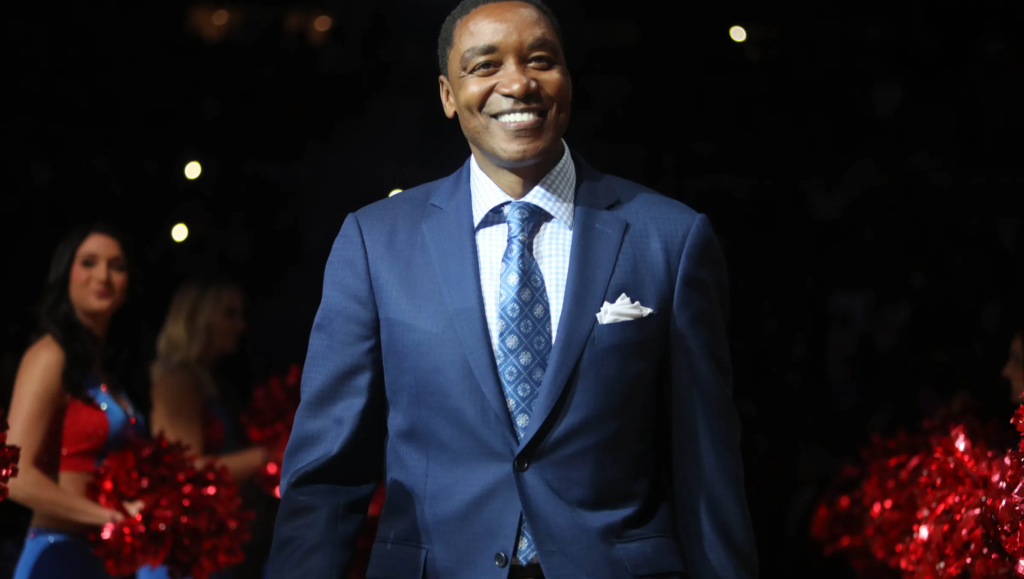
In the storied annals of NBA history, few relationships have sparked as much curiosity and controversy as that between Isiah Thomas and Michael Jordan. On the hardwood, they were fierce competitors. Off the court, they’ve been the subject of whispered feuds, disputed narratives, and unresolved tension. But in a powerful and candid conversation on Scoop B Originals Presents: The Freezeout, Isiah Thomas made a surprising admission: he never knew there was a beef — not until he watched it unfold on screen during ESPN’s The Last Dance documentary.
“Honestly until The Last Dance, I never knew there was a beef,” Thomas said in the interview. “You know again, I had gone out to dinner with him, I had seen him socially… I never knew that he felt THAT way about me.”
It was a moment of raw honesty — one that reframes decades of speculation. While fans have long assumed animosity stemming from their on-court clashes in the late ’80s and early ’90s, Thomas’ words painted a different picture: one of confusion, surprise, and a lack of reciprocated resentment.
A Rivalry Reexamined

The roots of the Thomas-Jordan saga stretch back nearly four decades. As the fiery floor general of the Detroit Pistons, Isiah led the infamous “Bad Boys” to back-to-back championships in 1989 and 1990 — both years knocking Jordan’s Bulls out of the playoffs. The Pistons were physical, unrelenting, and unapologetic, famously employing the “Jordan Rules” to contain the rising superstar.
That rivalry became iconic, but the animosity associated with it was never something Thomas internalized. When The Last Dance aired in 2020, millions of viewers watched as Jordan detailed his disdain for the Pistons and Thomas in particular — highlighting the infamous 1991 Eastern Conference Finals handshake snub, and later suggesting that Thomas’ presence on the Dream Team would have created “problems.”
Yet for Thomas, that public airing came as a shock.
“So again, I have no hard feelings against anyone,” he said. “And when I talk about the greatest players, I’m only talking about it from my perspective. No slight to anyone but, it’s just an acknowledgement of how great LeBron James is and what I’ve been watching. It’s just like the acknowledgement of Kareem Abdul-Jabbar.”
On Legacy and Respect

Thomas’ legacy has often been filtered through the lens of his battles with Jordan, but he’s long advocated for a broader view of greatness — one that includes a deep respect for LeBron James and Kareem Abdul-Jabbar, two players he believes deserve more recognition in the GOAT conversation.
“Now if people think that I’m trying to slight somebody by talking about these two,” Thomas said of LeBron and Kareem, “then they have an agenda of their own, not necessarily mine.”
It’s a delicate tightrope to walk. In an era where the basketball discourse is dominated by binary debates and “Mount Rushmore” lists, any deviation from the Jordan-dominant narrative is often seen as criticism. But Thomas made clear that his appreciation for other players isn’t about rivalry — it’s about recognition.
He’s not rewriting history; he’s simply offering his version of it. And for him, it was never personal.
“I’m Not One Who Walks Around With Hate”

Perhaps the most compelling part of Thomas’ remarks was his openness to dialogue and closure. Despite years of speculation about bad blood, he expressed no hesitation in sitting down for a conversation — even with Jordan.
“So, but anyway what would we talk about?… I don’t know but… Hey look, I’m not afraid of anybody,” Thomas said. “I’ll sit down and speak with anybody and anybody who’s ever been around me, seen me, been close to me… I’m not one who walks around with fear and I’m not one who walks around with hate.”
In a world where grudges often go viral and misunderstandings fester in the spotlight, Thomas’ words were disarming. They reflected not only maturity, but a genuine desire to move forward — or at least to understand.
“So you know, like I said; I never knew that he felt that way until I watched The Last Dance.”
Rewriting the Narrative

Thomas’ comments offer a poignant reminder of the human side of sports. Behind every headline, highlight reel, and meme-worthy moment are individuals with their own truths. And for Thomas, the truth is that he didn’t harbor hate — he never even knew it existed.
His words challenge us to reconsider what we think we know about the past. Maybe the real “freezeout” wasn’t about an All-Star Game or a Dream Team snub — maybe it was about silence, miscommunication, and the stories that get told when no one speaks up.
Now, Isiah Thomas is speaking. And in doing so, he may be thawing a decades-old narrative that was never his to begin with.
Editor’s Note: This interview was conducted as part of Scoop B Originals Presents: The Freezeout. Quotes have been presented in full for authenticity.

